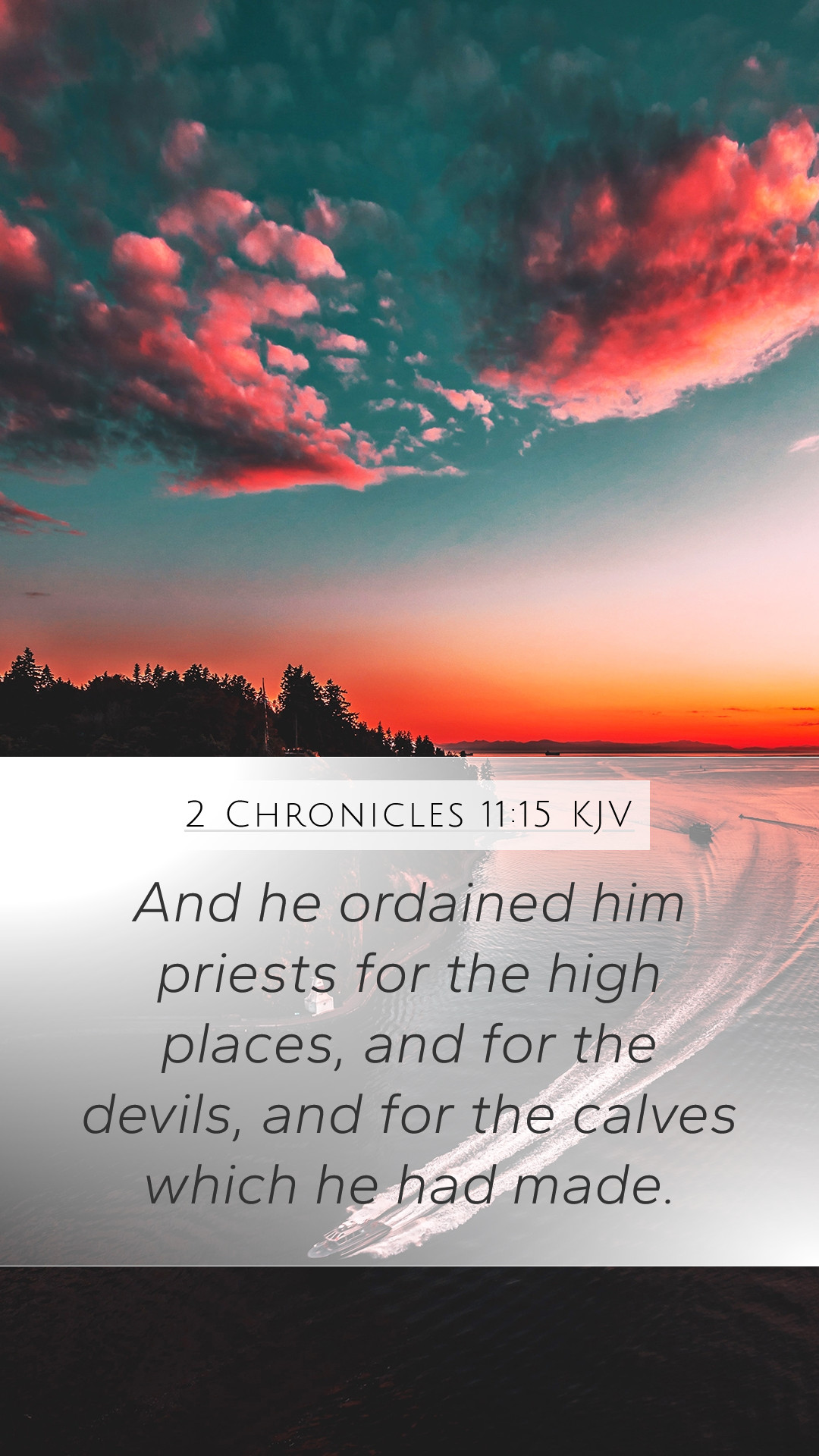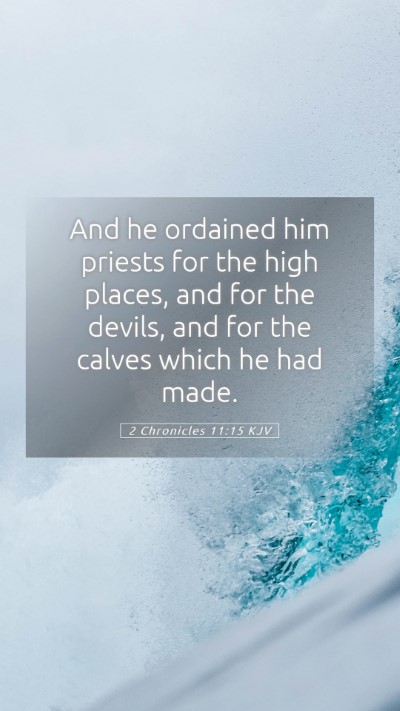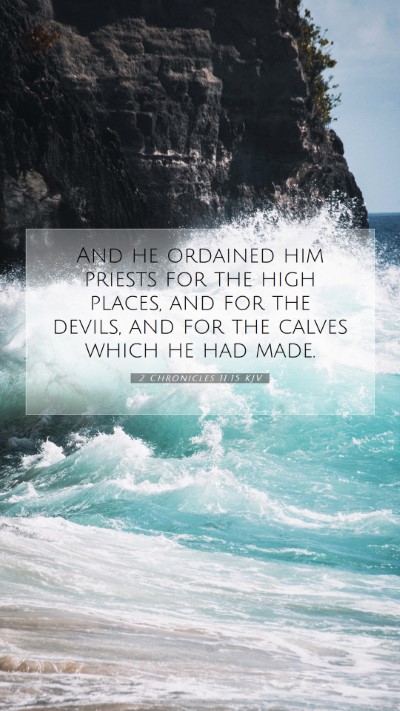Understanding 2 Chronicles 11:15 - Biblical Commentary and Insights
The verse 2 Chronicles 11:15 states: "And he ordained him priests for the high places, and for the devils, and for the calves which he had made." This passage is a critical point in the historical narrative of the kingdom of Judah and reflects the actions of Jeroboam after the division of the kingdom. Below, we will explore the meanings derived from various public domain commentaries to provide a cohesive understanding of this scripture.
Overview of 2 Chronicles 11:15
-
Historical Context:
This verse captures the moment when Jeroboam introduced practices that directly contradicted the worship of Yahweh, thereby leading Israel into idolatry. This was significant for the nation as it marked the beginning of deviations from the true worship, as highlighted by Albert Barnes in his commentary.
-
Religious Significance:
Matthew Henry underscores the grave implications of Jeroboam's actions, suggesting that the establishment of unauthorized priests was an affront to God's ordained system of worship. This action symbolized a rejection of divine order.
Commentary Insights
-
Matthew Henry's Commentary:
Henry points out that by appointing priests for high places, Jeroboam catered to the people’s desires rather than adhering to God’s laws. This act of promoting false worship illustrates a fundamental shift from authentic faith to a form of religion that was more convenient and popular, albeit sinful.
-
Albert Barnes' Commentary:
Barnes elaborates that by creating places of worship separate from Jerusalem, Jeroboam effectively set the stage for a syncretic religion. The mention of 'devils' in the verse indicates that these high places were not just centers for worship but also for pagan rituals, drawing the Israelites away from their covenant with God.
-
Adam Clarke's Commentary:
Clarke provides insight into the term 'calves,' referencing the golden calves that Jeroboam erected to be worshiped in place of Yahweh. He notes that these acts were a strategic move to prevent the people from returning to Jerusalem, thus solidifying Jeroboam’s control over the northern kingdom.
Theological Implications
The theological implications of 2 Chronicles 11:15 are significant as they reveal the consequences of disobedience and the drift into apostasy. The establishment of alternative forms of worship serves as a cautionary tale about the dangers of compromising spiritual integrity for political expedience.
Application for Today
For modern readers, this verse offers profound lessons about the importance of adhering to true worship and the dangers of idolatry in contemporary life. As believers engage in Bible study groups or online Bible studies, they can reflect on how easily society can sway leaders into adopting practices that deviate from Biblical mandates. Daily applications might include ensuring that personal worship and community practices align with Scripture, and resisting the temptation to create shortcuts in faith.
Cross References
- 1 Kings 12:26-33: Discussing Jeroboam’s establishment of worship in Dan and Bethel.
- 2 Kings 17:16-17: The consequences of Israel's idolatry.
- Jeremiah 7:18: God’s condemnation of the worship practices in Judah.
Conclusion
In conclusion, 2 Chronicles 11:15 provides critical insights into the consequences of turning away from God's ordained worship practices. With contributions from notable commentators, this verse serves as a powerful reminder for current and future generations about the importance of scriptural fidelity and the dangers posed by idolatrous practices. Engaging with this verse through various Bible study tools and Bible study lessons can deepen one’s understanding of Scripture and encourage faithful living.


